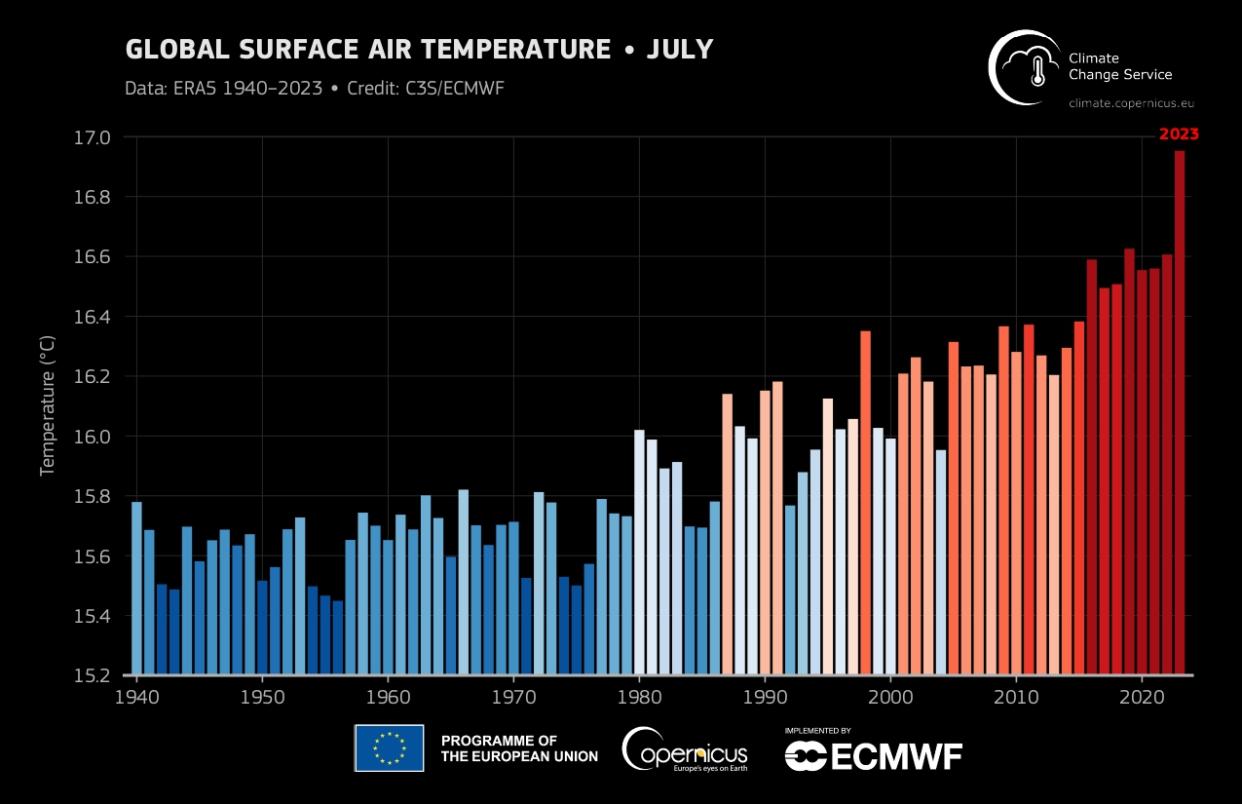July confirmed as the hottest month on record

July has been confirmed as the hottest month on record, the Copernicus Climate Change Service (C3S) has said.
It beat the previous one set in 2019 by 0.33C – a substantial margin by the standards of temperature records – reaching 16.95C.
Severe heatwaves baked southern Europe while raging wildfires forced the evacuation of thousands of residents and tourists from several Greek islands.
There were also high temperatures in South American countries, with some regions experiencing the same heat as in the Mediterranean despite being in winter.
July is estimated to have been around 1.5C warmer than the average for 1850-1900, Copernicus said, and 0.72C warmer than the 1991-2020 average.

This does not mean the goals of the Paris Agreement have failed as that refers to an average spreading over multiple years.
Ocean temperatures also reached record levels last month after running unusually high since April.
Buoyed by the El Nino effect, global average sea surface temperatures were 0.51C above the 1991-2020 average.
The North Atlantic was 1.05C above average in July, with marine heatwaves occurring south of Greenland, in the Caribbean and in the Mediterranean.
Dr Samantha Burgess, deputy director of C3S, said: “We just witnessed global air temperatures and global ocean surface temperatures set new all-time records in July.
According to the @WMO, July 2023 is likely to have been the hottest month on record. While many places around the world suffered the immediate consequences of these brutal temperatures, extreme events are also hitting hard the icy reaches of Antarctica 👉 https://t.co/8Ow1umFqWr pic.twitter.com/nfJ5YQgdQ7
— ESA (@esa) August 8, 2023
“These records have dire consequences for both people and the planet exposed to ever more frequent and intense extreme events.”
Antarctic sea ice has also been at record lows this July, freezing less than in any other winter since satellites began observations in 1979.
Scientists have said that if greenhouse gas emissions are not controlled, extreme weather will increasingly damage Antarctic ecosystems which will then impact on the rest of the world.
Dr Burgess said: “2023 is currently the third warmest year to date at 0.43C above the recent average, with the average global temperature in July at 1.5C above pre-industrial levels.
“Even if this is only temporary, it shows the urgency for ambitious efforts to reduce global greenhouse gas emissions, which are the main driver behind these records.”


